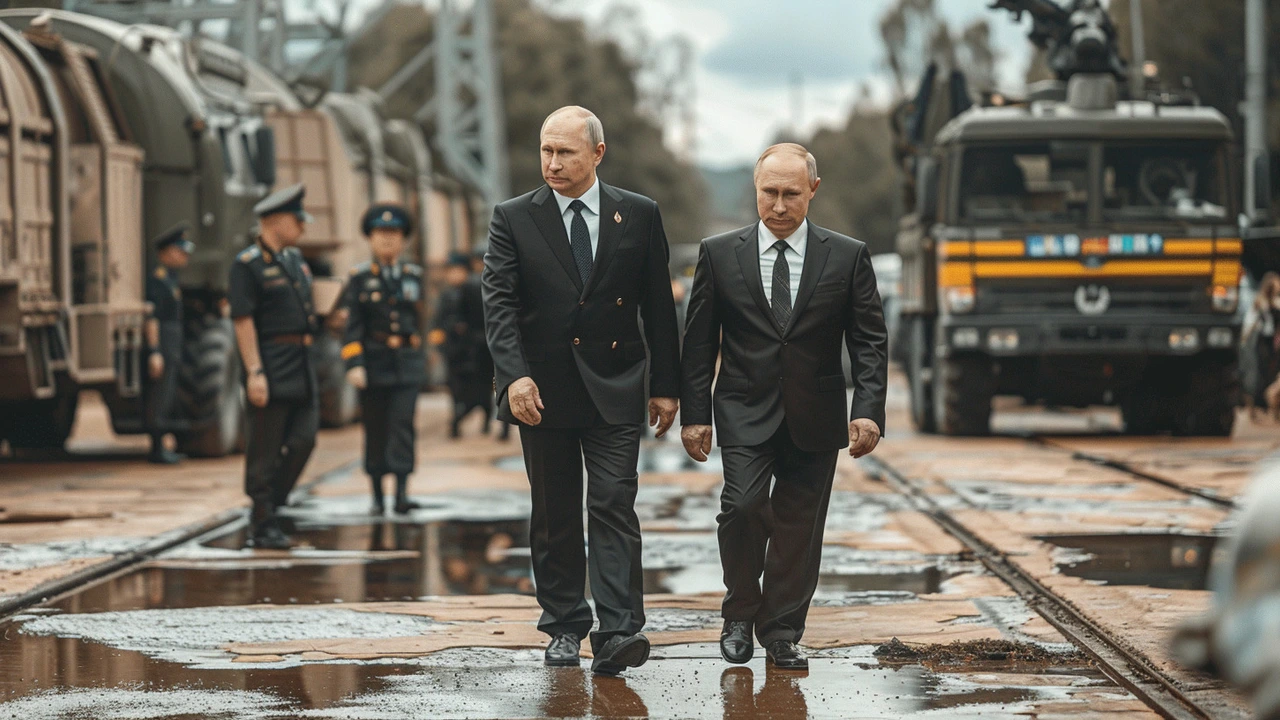
Introduction to Putin's Visit to China
Russian President Vladimir Putin has recently concluded a crucial two-day visit to China, seeking to secure Beijing's support for his military campaign in Ukraine and to enhance bilateral trade relations. This visit comes at a time when Russia is under significant economic sanctions from Western countries, making the partnership with China even more critical for Moscow.
Strengthening Russia-China Trade Ties
The visit underscored the strengthening partnership between Russia and China, with trade between the two nations reaching a record $240 billion in 2023. Both economic giants have seen the mutual benefits of such a robust trade relationship, and the figures only emphasize the deepening ties. Putin is fully aware that bolstering economic relations with China can help mitigate the impact of sanctions imposed by Western nations.
Energy Sector Emphasis
A significant portion of the discussions revolved around the energy sector. Russia, rich in natural resources, finds an essential market in China. The trade in oil and gas forms a cornerstone of the economic ties between the two countries. Putin and Xi Jinping likely discussed ways to expand this cooperation further, ensuring that both nations could benefit from stable and mutually advantageous agreements. This energy partnership not only supports Russia’s economy but also aligns with China’s growing energy needs.
Meetings with Xi Jinping
During his visit, Putin met with Chinese President Xi Jinping. The tête-à-tête between these two powerful leaders was a key highlight of the trip. They engaged in extensive discussions, particularly focusing on the ongoing Ukraine crisis. Xi Jinping reaffirmed China’s commitment to facilitating a political resolution to the conflict. This stance, while supportive, also shows China’s attempt to maintain a balancing act in its international relations, given the international pressure to limit support for Russia’s military endeavors.
Addressing International Concerns
The international community closely watched Putin’s visit, especially Western nations urging China to limit its economic support for Russia. While the West sees China’s support as a potential prolongation of the Ukraine conflict, Beijing has been trying to position itself as a neutral facilitator for peace. China’s pledge to aid in political talks concerning Ukraine could be seen as a diplomatic maneuver to alleviate such pressures while still benefiting from economic ties with Russia.
Economic and Technological Cooperation
Beyond trade in traditional sectors, there were also discussions about enhancing cooperation in high technologies and innovations. Both regions see an opportunity in collaborating on technological advancements, which could lead to significant projects in various fields such as artificial intelligence, renewable energy, and advanced manufacturing. This aspect of the partnership could be crucial for both nations, allowing them to compete more effectively on the global stage.
Impact on Sanctions
By deepening economic and technological cooperation, both Russia and China can reduce their dependence on Western technologies and markets. This strategy is vital for Russia, especially given the sanctions that have isolated its economy. For China, it provides an opportunity to secure reliable resources and explore innovation opportunities without Western restrictions. This mutual benefit drives both nations to seek closer ties and explore new avenues for cooperation.
Putin's Foreign Policy Agenda
This visit marked Putin’s first foreign trip since his re-election in March, signaling a strong message about his foreign policy priorities. By choosing China as his destination, he underscores the importance of the Sino-Russian relationship in his broader international strategy. Given the geopolitical dynamics, Putin’s outreach to China reflects an attempt to build a strong front against perceived Western encroachments.
Conclusion
In conclusion, Putin’s visit to China was more than just a diplomatic formality; it was a strategic move to ensure continued support and partnership at a time of significant geopolitical tension. The strengthening of trade, particularly in the energy sector, and the potential for cooperation in technology and innovation highlight the robust and multifaceted nature of the Russia-China relationship. As both nations navigate the complex landscape of international politics, their partnership will likely continue to be a pivotal element.
Write a comment